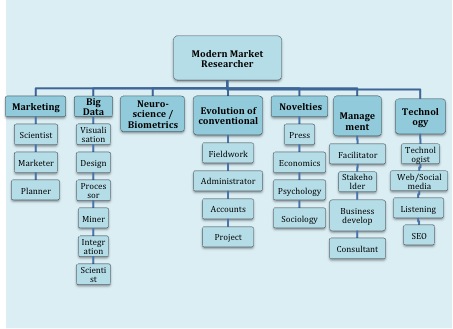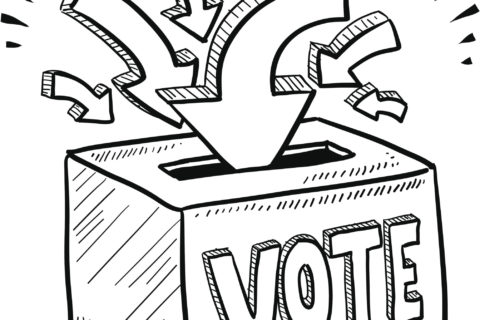A guide for young professionals
Market Research is a field I found myself being fascinated by after working in an advertising agency in London almost 5 years ago. Ever since, I’ve been wondering what is the main ingredient that makes it so interesting and alluring to me. And I have now found the answer; it’s a unique combination of art and science applied in the business world; that is the core beauty of the discipline, and one which I have followed for many years during my academic and professional career.
Coming from a scientific and business background, I was always fascinated by solving problems, investigating situations and thinking one step ahead. Being a research oriented person with multiple interests, I found myself applying all these various skills and knowledge in the best way. Everything I have learnt throughout my academic career is now coming together reinforcing my understanding from a holistic point of view and adding value from a wider perspective.
Ever since I started exploring Market Research and the potential career paths in the industry I have discovered so many astonishing specialties that one would never think of. There are so many paths that a young professional can follow, from consultancy to behavioural economics – most people are completely unaware of the depth. Although conducting market research involves the use of several fields, including statistics and psychology, its methods are taught only in limited academic courses, (mostly in marketing degrees), resulting in a lack of awareness among graduates that could potentially choose it as a career.
Market research has low awareness not only among graduates but also in the general non-marketing world. I have personally experienced, several times, needing to explain the purpose and the benefits of market research. The general public knows that it exists but don’t recognise the benefits research presents outside of the polls for elections.
Because the use and the career paths in market research are unclear, this is a good opportunity, to highlight the possible career paths that a young professional can follow as a market researcher.
I am going to start with the conventional career path that most successful market researchers have had for the last 30 or so years and then I am going to explore the modern and alternative paths from other disciplines.
The standard path is: You start as a graduate in a big market research agency and once you are qualified and experienced enough, you “jump” to the client side. At the beginning you choose whether you are a “qual” or “quant” person and you stick with it throughout your career. Although it is very easy to go back and forth from agency to client’s side, it’s very difficult to change the label of “qual” to “quant”, or vice versa. This is a restricted definition of what a researcher looks like.
However, nowadays things are not that straightforward. We live in a revolutionary era where multiple disciplines influence and benefit from each other. The future, that is more diverse, has now has arrived with many exciting opportunities for the young professionals. There are hundreds of job titles out there that one can have as a market researcher, complicating the situation even more. I am now going to attempt to classify them in a few categories, with the aid of the discipline they are affiliated with.
So first, we have the marketing sub-specialties with professions such as marketing scientist, marketing, advertising or strategic planner and marketer. Marketing has shifted from a supporting system to a core driving force to a company’s success.
Secondly, we have “Big Data” that has given rise to many specialties with great potentials. Among them, experts in data visualization and infographics, market research graphic designers, data processors and miners, data integration experts and data scientists are the professions that are expected to thrive in the upcoming decade.
Thirdly, we have the involvement of science in marketing. Scientific progress has given rise to new professions whose work integrates scientific findings into business. Exciting professions in this area are neuroscientists and biometricians who use neuroscience tools and biometrics to measure the impact of stimuli on physiological human reaction.
It is remarkable that even conventional professions are now evolving. Fieldwork managers are now responsible for both online and offline places, administrators deal with several aspects of market research, from delivery to client services. Account directors and project managers are not excluded but they interact with each other, transmitting knowledge to each other, not in a competitive way of old but they work together, they collaborate and complement each other.
Next, it is remarkable that new unrelated areas are appearing in the area. Some of the most upcoming professions are related to press, such as journalists, writers and storytellers, to economics, such as behavioral economist and to psychology/sociology such as ethnographer, anthropologist and sociologist.
The sixth area is the area of management professions, that pop-up in market research with great success. Among them the most successful ones are network facilitators, negotiators and stakeholder managers, business developers and management consultants.
Lastly, the technology area continues to thrive with new professions related to market research, such as technologists, web and social media analysts, listening experts and search optimisation experts.
Having this classification as a guide, I attempted to aid any young professional who is considering starting a career in market research and to show that there is not one way to success. Rules that govern market research have now changed: thanks to other disciplines, the coin has more than two sides. With this in mind, I recommend that market research providers should try to attract young people that are intuitively research orientated and not necessary with a business marketing background. These young people are more creative and innovative – what research needs in the future!
Helene Protopapas is IE Business School graduate student in Market Research & Consumer Behaviour.




2 comments
I have done my MBA but I did SAS and now is in BI field for past 4 years. But i am really interested in Market Research. How do i make this career shift as i dont have experience in market research?
A very informative article that I will share with my students at Henley Business School